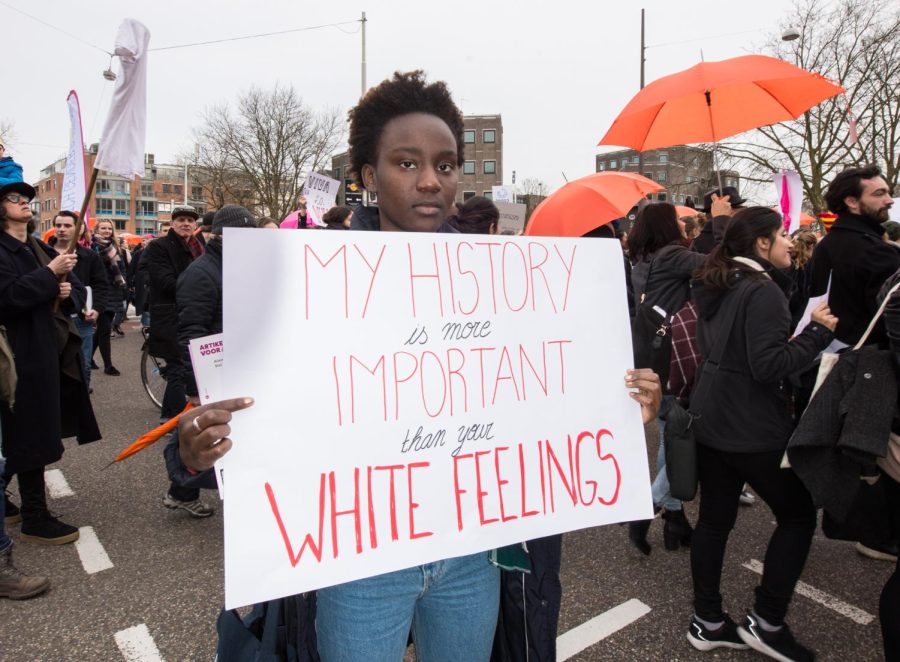Last month, Netflix was under fire for the log line it used for “Pocahontas,” which is not about, “An American Indian woman is supposed to marry the village’s best warrior, but she yearns for something more—and soon meets Capt. John Smith.”
Sure, Pocahontas does fall in love with John Smith instead of marrying Kocoum, a man her father hoped she would marry, but her story is more than just the men in her life.
She dives off cliffs, she runs freely through the forests, she teaches Smith to see the beauty of nature and respect it, she saves Smith’s life and defends her people from the new settlers. She can paint with all the colors of the wind, people!
Thankfully, the company has since changed the line to read, “A young American Indian girl tries to follow her heart and protect her tribe when settlers arrive and threaten the land she loves.” Now, that’s better Netflix.
What’s the importance of changing these lines? Is it really that big of a deal? Well, it is for the people who are constantly misrepresented and stereotyped by poor word choice. It’s not that people and company’s like Netflix are purposely sexist. Most bias people hold against one another is unconscious. Here are six log lines that need a progressive adjustment.
Legally Blond
A pretty-in-pink sorority girl has her mind set on winning back her ex—even if it means going to law school!
Elle may have started out as a “pretty-in-pink sorority girl,” to use Netflix’s exact words, with the hopes of getting back together with her ex-boyfriend. However, her character develops as the film progresses. She ends up excelling in law school and ultimately becomes the top of her class. A little allusion to her success would have been great, and can be done in a way that does not spoil the story.
Anastasia
Two con men try to pass off a Russian girl as royalty. But the jokes on them—she’s the real deal!
Are you kidding? The line barely even introduces the protagonist of the entire movie. Although the story includes the two con men, they are not the focus. Instead, it is more about Anastasia, you know, the “Russian girl” as Netflix calls her, discovering where she comes from and reuniting with her family. The film is kind of named after her, so shouldn’t she be, I don’t know, mentioned?
Madam Secretary
When a highly capable woman becomes secretary of state, she struggles to find balance between the demands of world politics and those of her family.
As much as the term “highly capable woman” may seem like a compliment, it’s not. If this movie was about a man, would he be referred to as a highly capable man? Probably not, since it is assumed that a man could be more than capable to handle the stress of the job. Don’t even get me started on the struggle to balance work with family, but this issue has more to do with the film than the line. Do movies featuring men with political careers heavily focus on how it affects family life?
Mulan 2
Last month she became a revolutionary warrior. Today she became a bride with a mysterious new mission.
Mulan didn’t lose her status as a warrior in her sequel because she is going to marry Shang. The line implies that she lost her title as “revolutionary warrior.” Mulan continues to be a fighter, a leader and make sacrifices for the good of her friends and country in her “mysterious new mission.”
Mercenaries
When a lady terrorist messes with the U.S., fight female with female. The best men for the job are in a women’s prison.
Why is the terrorist called a “lady terrorist?” Why not just call her a terrorist? If this film was about a male terrorist attacking the U.S. would he be called a “macho terrorist?” What about a “manly terrorist?” One could argue the writer wanted the audience to know that the terrorist is a woman, but that just brings up another issue. Why wouldn’t people think of women being terrorists, doctors, scientists or political leaders? It’s like calling a man who is a nurse a “male nurse.” He is a nurse. She is a terrorist. There’s no need to add the gender.
***
Bottom line, words are powerful, evoke emotion and can be hurtful. Thus, we should be more conscious of the words we speak, publish and share with others.




